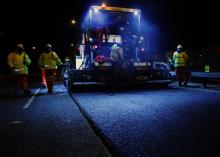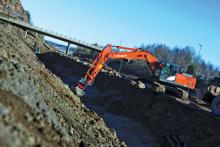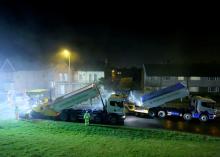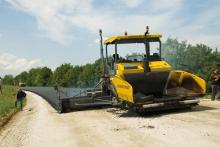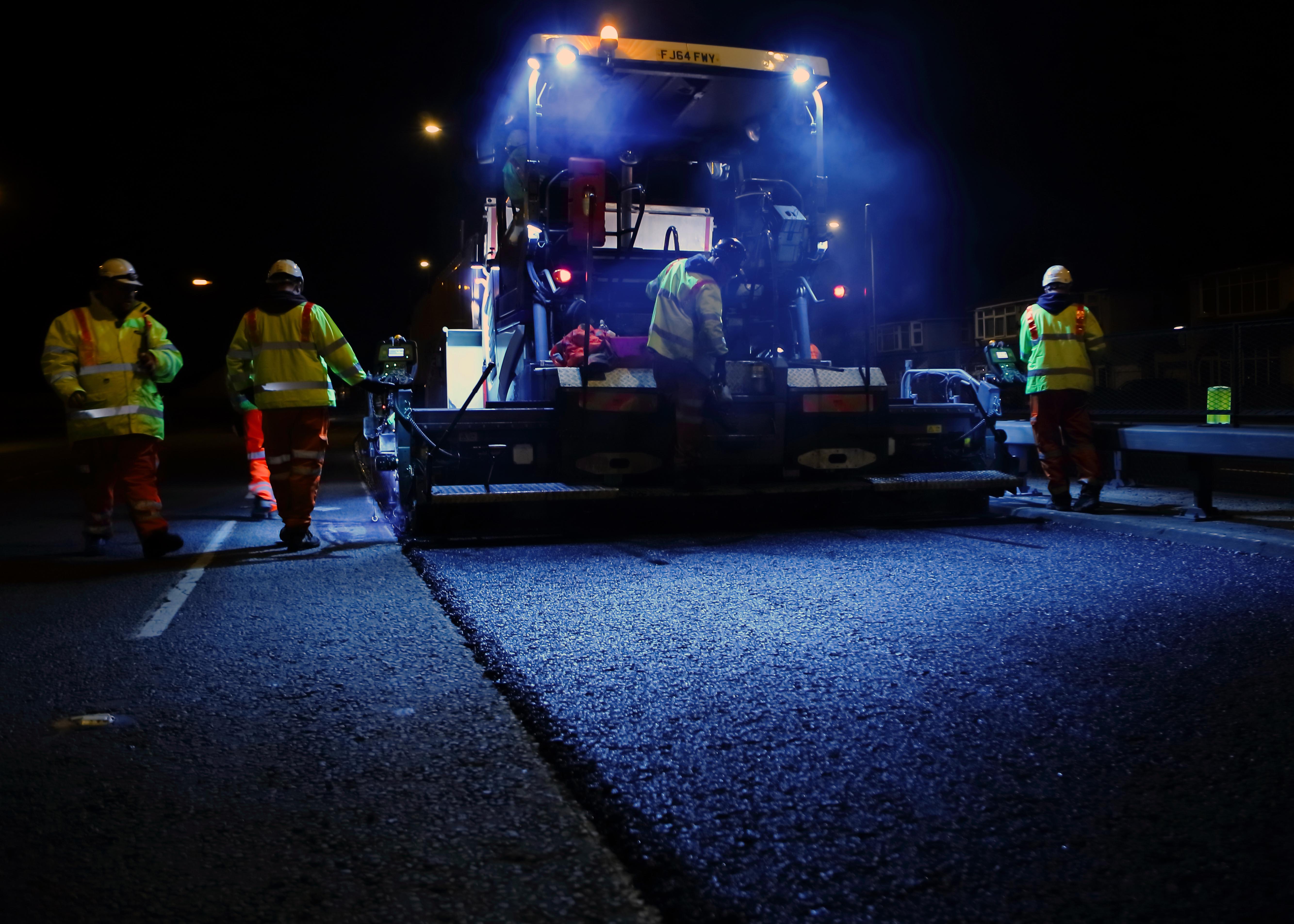
Introduced in line with the company’s zero harm ethos, the new system, known as Automated Inspection and Testing (AIT), will see all pavers, rollers and survey vehicles fitted with the latest technology including GPS, infra-red sensors and a data recording unit – all of which will be used to automatically capture high quality data before, during and after the surfacing process.
The innovative initiative has been designed to minimise the risk to employees during pavement construction by replacing the need for a human technician to carry out the highly dangerous task of data capture. The investment by one of the UK’s leading building materials suppliers, who also offer a national road surfacing and contracting service, follows a number of serious incidents across the industry in recent years, including fatalities.
Neil Leake, national technical manager at Aggregate Industries, said: “Traditionally, the road surfacing process requires at least one or two technicians with each surfacing gang, working manually to gather and record data on everything from material temperatures to ride profile. During this task, technicians are not only exposed to the dangers of working in close proximity to live traffic and construction vehicles but also face a myriad of other risks including lone working and hot material interface.
“By removing the need for technicians in data capture altogether, our AIT system is a new state-of-the-art approach that could potentially save lives - with extensive trials proving it has made the road surfacing process infinitely safer. At the same time, it will also go a long way in plugging the industry-wide skills shortage, as it means data capture operatives can now be redeployed to other contracting areas in urgent need of skilled staff.”
After consulting with leading materials and testing firm Mattest Southern, Aggregate Industries formulated the AIT system so that pavers and rollers can be linked together to manage the compaction process, by recording the rolling temperature and the number of passes.
Meanwhile, the final element of the AIT procedure is surface texture and rolling straight edge testing of the finished pavement, which using laser scanners and video recording can now be completed with improved accuracy and without the need for a human technician. The result is a complete record of the laying process with zero risk to employees.
Leake added: “The AIT system has proved to be an incredible success. Following extensive trials to determine the accuracy of the data gathered, we are now using it on a number of contracts and have seen marked improvements in safety across the board whilst at the same time providing enhancing asset management data for our customers that also meets Building Information Management (BIM) compliance.
Paddy Murphy, managing director of Contracting Services at Aggregate Industries, said: “Innovation and safety is at the heart of everything we do therefore I’d like to thank all those involved in this project for their hard work and commitment in creating a system we hope will make a lasting contribution to improving safety standards across the industry.”

